Beacon Hill Roll Call, May 6-10

| Published: 05-20-2024 2:35 PM |
THE HOUSE AND SENATE: There were no roll calls in the House or Senate last week.
The Senate has held 35 roll calls so far in the 2024 session. Beacon Hill Roll Call tabulates the number of roll calls on which each senator voted and then calculates that number as a percentage of the total roll call votes held. That percentage is the number referred to as the roll call attendance record.
Thirty-seven (92.5 percent) of the current 40 senators did not miss any roll calls and have 100 percent roll call attendance records.
The senator who missed the most roll calls is Sen. Mike Rush (D-West Roxbury) who missed nine roll calls resulting in a 74.2 percent roll call attendance record. All nine missed roll calls were held on April 25th.
Article continues after...
Yesterday's Most Read Articles
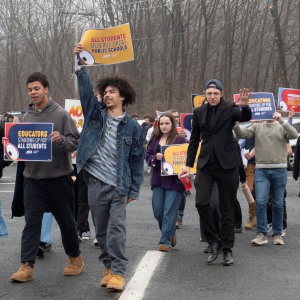 Nearly all of South Hadley High’s student body holds ‘walkout to walk-in’ rally to oppose cuts, call for funding reform
Nearly all of South Hadley High’s student body holds ‘walkout to walk-in’ rally to oppose cuts, call for funding reform
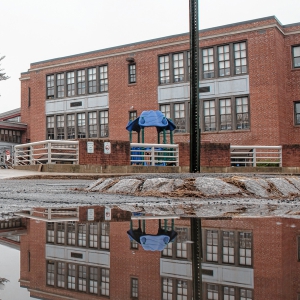 Northampton schools probe staff response to student’s unfulfilled IEP
Northampton schools probe staff response to student’s unfulfilled IEP
 UMass basketball: Minutemen land Florida Tech transfer Donovan Brown
UMass basketball: Minutemen land Florida Tech transfer Donovan Brown
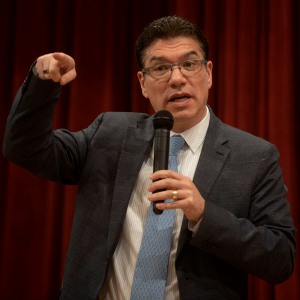 UMass Chancellor Reyes outlines changes amid financial uncertainty under Trump administration
UMass Chancellor Reyes outlines changes amid financial uncertainty under Trump administration
 Northampton Housing Authority boss placed on leave
Northampton Housing Authority boss placed on leave
 Four Red Fire Farm workers arrested as part of ICE operation in Springfield
Four Red Fire Farm workers arrested as part of ICE operation in Springfield
“On April 25th, I was on orders with the United States Navy and as a result was unable to participate in roll call votes during that session,” Rush told Beacon Hill Roll Call. “On April 29th, I submitted a letter to the Clerk of the Senate to be included in the Senate Journal stating this fact and recording how I would have voted had I been present.”
The only other senator who missed any roll calls is Sen. Mike Barrett (D-Lexington) who missed two roll calls on January 11, resulting in a 94.2 percent roll call attendance record. Barrett did not respond to repeated requests by Beacon Hill Roll Call asking him for a comment.
It is a Senate tradition that the Senate president only votes occasionally. Current Senate President Karen Spilka follows that tradition and only voted on six (17.1 percent) of the 35 roll calls while not voting on 29 (82.9 percent) of them.
SENATORS’ 2024 ROLL CALL ATTENDANCE RECORDS THROUGH MAY 10
The percentage listed next to the senator’s name is the percentage of roll call votes on which the senator voted. The number in parentheses represents the number of roll calls that he or she missed.
Sen. Joanne Comerford 100 percent (0); Sen. Paul Mark 100 percent (0); Sen. Jacob Oliveira 100 percent (0); Sen. John Velis 100 percent (0)
SENATE WAYS AND MEANS COMMITTEE PROPOSES $57.9 BILLION FISCAL 2025 STATE BUDGET (S 4): The Senate fired the next shot in the long battle over the state budget for fiscal year 2025 that begins on July 1. The Senate Ways and Means Committee proposed its own version of the spending package.
Gov. Maura Healey fired the opening volley in January when she filed her version of the spending package. The House recently approved its own $57.9 billion version. It increases spending by $1.9 billion, or 3.3 percent, over the current fiscal year 2024 budget. The Senate will debate the budget the week of May 20 and a House-Senate conference committee will eventually craft a plan that will be presented to the House and Senate for consideration and sent to the governor.
BAN HOME EQUITY THEFT (H 4624): The Revenue Committee has advanced a new version of a bill that would prohibit cities and towns that foreclose on properties on which the owner owes back property taxes, from keeping all of the profits when the city or town sells the property at auction. Current Massachusetts law allows this practice.
Last year, the United States Supreme Court ruled that cities and towns that foreclose on properties on which the owner owes back property taxes, cannot keep all of the profits when the city or town sells the property at auction. Supreme Court Chief Justice John Roberts, writing a unanimous decision about a similar Minnesota law, said that “a taxpayer who loses her $40,000 house to the state to fulfill a $15,000 tax debt has made a far greater contribution to the public fisc than she owed.”
Senate co-chair of the Revenue Committee Sen. Susan Moran (D-Falmouth) said she never imagined that cities and towns could keep the equity after a home was seized and a debt paid. “Because in all the consumer work that I did, or with respect to mortgages ... the individuals who owed the debt were able to retain their equity,” said Moran. “So I was not familiar that with municipal foreclosures, the municipality actually kept all of that equity. And I felt that it was incredibly unfair.”
BAN SENDING DEEPFAKE IMAGES 90 DAYS OR LESS PRIOR TO ELECTION DAY (S 2730): The Election Laws Committee held a hearing on legislation that would prohibit a person from knowingly sending out deepfakes of a candidate or political party 90 days or less prior to an election without providing a disclaimer as follows: “This (image, video or audio) has been manipulated or generated by artificial intelligence.”
A deepfake is defined as an image, audio recording or video recording of a candidate’s appearance, speech or conduct that has been intentionally manipulated through digital and other means to injure the reputation of the candidate. It is designed to deceive a voter and appear to a reasonable person to depict a real individual saying or doing something that that individual did not say or do.
Supporters note that the 90-day period is used because 90 days or less before Election Day is crunch time, and at that late date, campaigns may not have time or resources to adequately respond to deepfakes and ensure voters know the material is non-authentic during this time fame.
The measure empowers aggrieved candidates to seek civil action up to a $10,000 fine against the person who posted the deep fakes. The bill’s provisions do not apply to news outlets or websites as long as the outlet acknowledges that the authenticity of the deep fake is in question.
“Voters deserve to make their decisions on accurate information — and deepfake media makes that difficult,” said sponsor Sen. Barry Finegold (D-Andover). ”With artificial intelligence rapidly evolving, I am proud to have filed this proposal that will protect voters from the influence of deceptive and fraudulent media this election cycle.”
Craig Holman, a lobbyist for Public Citizen, the Washington D.C. consumer organization founded by Ralph Nader, testified and told the Election Laws Committee that 13 other states have already adopted similar legislation. He said that the upcoming election “is shaping up to be the first very serious deepfake election we’ve ever seen.”
“Artificial intelligence has been around for a while,” said Holman. “But only this year, this election cycle, we’ve seen startling new advances where artificial intelligence can depict a candidate saying or doing something that they never did. And it’s almost impossible to tell the difference between what’s real and what is just entirely computer fabricated.”
“It’s not a ban,” continued Holman. “It exempts news media, it exempts broadcasters and even social media platforms that make a reasonable effort to discern whether a communication is a deepfake or not. And it provides the targeted candidate with injunctive relief to try to stop further dissemination of that type of deepfake ad.”
$2.4 MILLION FOR SUPPORTIVE AND SOCIAL DAY PROGRAMS: Gov. Maura Healey announced that $2.4 million in grants, ranging from $15,000 to $300,000, will go to 20 organizations and communities to broaden Supportive and Social Day Programs to help community organizations and municipalities expand or launch Supportive and Social Day Programs for older adults and individuals with Alzheimer’s disease and related dementias in their community.
Advocates said that recognizing that historically underrepresented communities lack access to Supportive and Social Day Programming, funding will be awarded to rural communities and Gateway Cities, and will focus on developing programs in Portuguese, Haitian Creole, Chinese, Spanish and American Sign Language.
“We’re proud to support these organizations that are doing incredible work across our state to serve older adults, especially those who are suffering from Alzheimer’s and related dementias,” said Gov. Healey. “It’s important that our older adults and their loved ones can feel confident that they are receiving the best care possible. Our administration is proud to award this funding that will make Massachusetts more welcoming and livable for residents of all ages.”
“Social and Supportive Day programs are essential to support our most vulnerable aging adults,” said Secretary of Elder Affairs Elizabeth Chen. “These programs provide a safe space for those with Alzheimer’s and related dementias to gather, stimulate conversation and foster connections. A number of these programs shut down during the pandemic, leaving these residents without a place to go, so the creation and expansion of the awarded programs is so important for our communities’ post-pandemic.”
END VETERANS’ HOMELESSNESS: Secretary Jon Santiago of the Executive Office of Veterans Services and Secretary Ed Augustus of the Executive Office of Housing and Livable Communities met with staff and residents of Brighton Marine to discuss the Healey administration’s goal of ending veterans’ homelessness by 2027. Brighton Marine, according to its website “supports uniformed services members, retirees, veterans and their families by providing US Family Health Plan, wrap around support services and case management for the greater Boston community.”
The Healey Administration said the End Veterans Homelessness campaign is a multi-pronged partnership to identify all homeless veterans in Massachusetts, develop and implement comprehensive and evidence-based strategies to prevent and intervene in veterans’ homelessness and bring it to functional zero. The campaign will coordinate efforts across federal, state and the non-profit sector to address veteran homelessness and support providers who are working daily to improve veteran care and housing.
“No veteran should ever be homeless,” said Secretary Ed Augustus. “Since Day One, Gov. Healey and Lt. Gov. Driscoll have prioritized housing. Our shared vision for an affordable Massachusetts means every veteran not only has a home but is getting the support services they deserve.”
MORE BICYCLE LANES (H 3350): The House gave initial approval to a bill that would require that any city or town that has received state funding for transportation development, conduct a study to expand the number of bicycle routes on its local public roadways. The measure mandates that the city or town report back to Legislature in six months with a report including its findings and proposals to increase the lanes.
Sponsor Rep. Daniel Hunt (D-Dorchester) did not respond to several requests by Beacon Hill Roll Call asking him to comment on his proposal.
NO PENALTIES FOR CANCELLING AN AUTO INSURANCE POLICY (H 1102): The House gave initial approval to legislation that would allow auto insurance policyholders, if they cancel a policy or change companies, to be entitled to a pro-rated rebate for the exact number of days paid for in the policy without any surcharge of expenses beyond the exact days the policy was in effect.
Rep. James Murphy (D-Weymouth), the bill’s sponsor, did not respond to repeated requests by Beacon Hill Roll Call asking him to comment on his proposal.
“It’s almost impossible for individuals and families to thrive and live healthy, productive lives when they are not adequately and safely housed. Affordable, accessible housing allows people to prioritize their health care needs and the needs of their families, while also creating vibrant, healthier, safer and more productive communities across Massachusetts.”
— Secretary of Health and Human Services Kate Walsh during a meeting with health care leaders to discuss the impact of the high housing costs on public health, as well as the industry’s ability to recruit and retain a talented workforce to provide care.
“The countdown is on for REAL ID federal enforcement and the Massachusetts Registry of Motor Vehicles, and its partner AAA Northeast, have successfully been issuing REAL ID credentials and are prepared for interested residents prior to the May 2025 deadline. We want Massachusetts residents to know they can upgrade to the REAL ID driver’s license or identification card during their normal renewal process for the same cost as a renewal.”
— Registrar of Motor Vehicles Colleen Ogilvie reminding residents that beginning May 7, 2025, anyone traveling by plane domestically or entering certain federal building areas will need a Registry-issued REAL ID-compliant driver’s license or ID or a valid passport.
“As a fifth-generation dairy farmer, I understand how demanding and stressful farming can be. Our farmers have always been resilient and resourceful in tackling the challenges of their work, but it’s important we provide resources to prioritize their mental health. Our priority is letting our farmers know that there are people who care and are ready to listen, and there is a network of farmers across Massachusetts available to discuss their challenges and work with them to improve their mental well-being.”
— Massachusetts Department of Agricultural Resources Commissioner Ashley Randle raising awareness of the Mass Grown Wellness Program that was launched in 2023 to promote mental health and well-being among members of the farming community.
“We are committed to ensuring that every city and town has the most advanced tools to protect against cyberattacks. Given the enormous importance of cyber resiliency, we are working around the clock to empower local leaders, strengthen our workforce and upgrade technology to keep our communities safe.”
— Secretary Yvonne Hao of the Executive Office of Economic Development announcing the Cyber Resilient Massachusetts Grant Program, a $1.4 million initiative to help local governments improve their cyber defenses. The program will provide municipalities with grants to fund narrowly focused cybersecurity technology upgrades identified through vulnerability assessments.
Bob Katzen welcomes feedback at bob@beaconhillrollcall.com.






 Sabadosa, Velis push for state endometriosis task force to raise awareness about little-known illness
Sabadosa, Velis push for state endometriosis task force to raise awareness about little-known illness 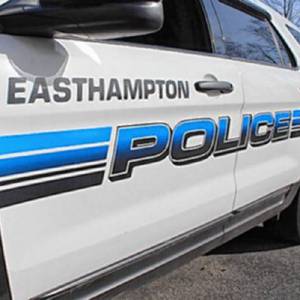 Around the Hamptons: Four candidates advance for Easthampton police chief
Around the Hamptons: Four candidates advance for Easthampton police chief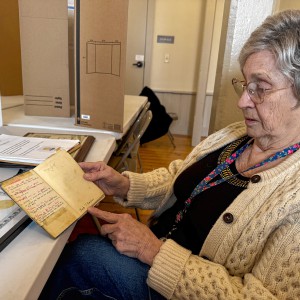 Having adapted over time, Whately Grange celebrating 85 years
Having adapted over time, Whately Grange celebrating 85 years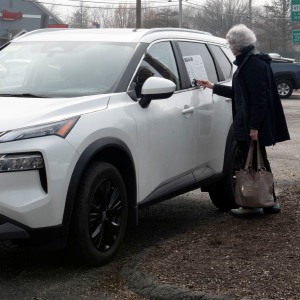 Dash to the dealership?: Local consumers, car sellers brace for auto tariffs to kick in Wednesday
Dash to the dealership?: Local consumers, car sellers brace for auto tariffs to kick in Wednesday
